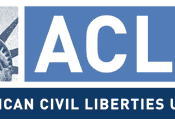Should the Government Ban Cyber Porn on the Internet?My stand on this very debatable topic is NO. Since the enactment of the Communications Decency Act, it is now a criminal act to use of any computer network to display indecent material, unless the content provider uses an effective method to restrict access to that material to anyone under the age of 18 (Reno, 1997). In my opinion the statute bans too much speech from the Internet. The Internet promised the ordinary citizen a low cost method of reaching an audience beyond immediate family, friends, and neighbors. I think legislation like the CDA betrays that hope and is unconstitutional.
I think this because computer communications networks, that constitute the internet, are nothing more than powerful engines of speech. They empower anyone, anywhere, to create any kind of content and to distribute it to anyone, anywhere, who seeks it out. The ordinary citizen will be not just a listener.
He or she can be a speaker as well. (Neubauer, 2002)Another issue, the regulation of child pornography, is another important point of interest. Online services generally control subscriber contributed content by contract, stipulating in their service contracts with subscribers that some types of speech are not allowed. Some use software filters that automatically prohibit speech using certain keywords. If the user wants, he or she can buy software that will block his or her own or children's access to a wide range of objectionable information. Some filters currently available are: Net Nanny, Cyber Sitter, Surf Watch, and Cyber Patrol. (Cyber, 2007)Access to most commercial pornographers' material, except for a few teasers floated for advertising purposes, has always been restricted because they want payment from their audience; they demand credit card numbers or passwords. Sexually explicit materials are available on computer networks because...



Uncommon, unorthodox,... special
Great choice of topic and well written.
0 out of 0 people found this comment useful.